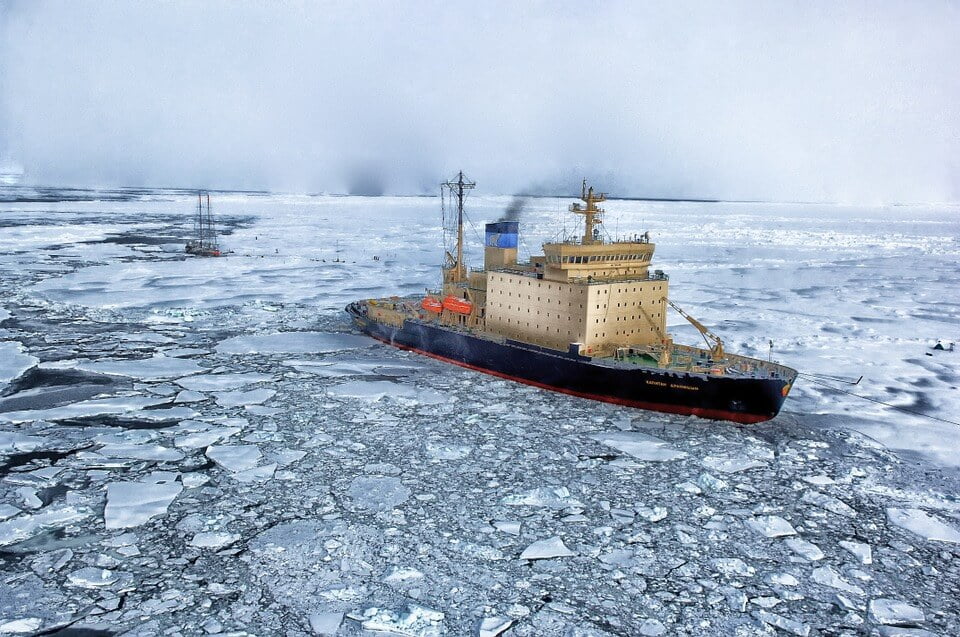
Loss of ice in Antarctica has caused global sea levels to rise by 7.6 millimeters since 1992, with 40 percent of the increase happening in just the past five years, according to a major new international climate assessment funded by NASA and ESA (European Space Agency).
According to the Ice Sheet Mass Balance Inter-Comparison Exercise – published in the Nature journal, ice losses from Antarctica is causing sea levels to rise faster today than at any time in the past 25 years.
One of the most comprehensive assessment of Antarctic ice mass changes to date, the study involved 80 scientists from 42 international organizations and some 24 satellite surveys of Antarctica.
The team looked at the mass balance of the Antarctic ice sheet from 1992 to 2017 and found ice losses from Antarctica raised global sea levels by 0.3 inches (7.6 millimeters), with a disproportionately higher ice loss in recent years.
West Antarctica experienced the greatest ice loss. Most of this loss came from the huge Pine Island and Thwaites Glaciers, which are retreating rapidly due to ocean-induced melting.
Antarctica’s contribution to global sea level rise is 7.5 times greater than all other sources of land-held ice in the world. The continent stores enough frozen water to raise global sea levels by 190 feet (58 meters), if it were to melt entirely. Knowing how much ice it’s losing is key to understanding the impacts of climate change now and its pace in the future.
Data from these missions will help scientists connect the environmental drivers of change with the mechanisms of ice loss to improve our projections of sea level rise in the coming decades.

Gravity measurements from the GRACE [Gravity Recovery & Climate Experiment] — a joint mission of NASA and German Aerospace Center — track the loss of ice mass in the Polar Regions and its impact on sea level around the planet. The data collected by GRACE’s twin satellites show us not only that the problem not only exists, but the fact that it is growing in severity with each passing year.
Antarctica stores enough frozen water to raise global sea levels by 58 meters. Knowing how much ice it’s losing is key to understanding the effects of climate change today and in the future.
The threefold jump in ice loss from the continent as a whole is a combination of increased melting in West Antarctica and the Antarctic Peninsula, with a small signal from the ice sheet in East Antarctica.
West Antarctica experienced the largest change, with ice losses growing annually from 53 billion tons per year in the 1990s to 159 billion tons since 2012. Most of this came from the huge Pine Island and Thwaites glaciers, which are retreating rapidly due to melting by warm ocean waters.
At the northern tip of the continent, ice shelf collapse at the Antarctic Peninsula has driven a 25 billion-ton increase in ice loss since the early 2000s. The East Antarctica ice sheet is thought to have remained relatively stable over the past 25 years.
“With the number of scientific studies focusing on this region, the technological tools we have at our disposal and data sets spanning several decades, we have an unequivocal picture of what’s happening in Antarctica,” said Eric Rignot, Donald Bren Professor and chair of Earth system science at UCI. “We are confident in our understanding of ice mass change in Antarctica and its impact on sea levels. We view these results as another ringing alarm for action to slow the warming of our planet.”
Rignot, who led the ice mass budget studies for the assessment, and Velicogna, who directed gravity measurement, also serve as research scientists at NASA’s Jet Propulsion Laboratory. The project was supported by NASA and the European Space Agency.

